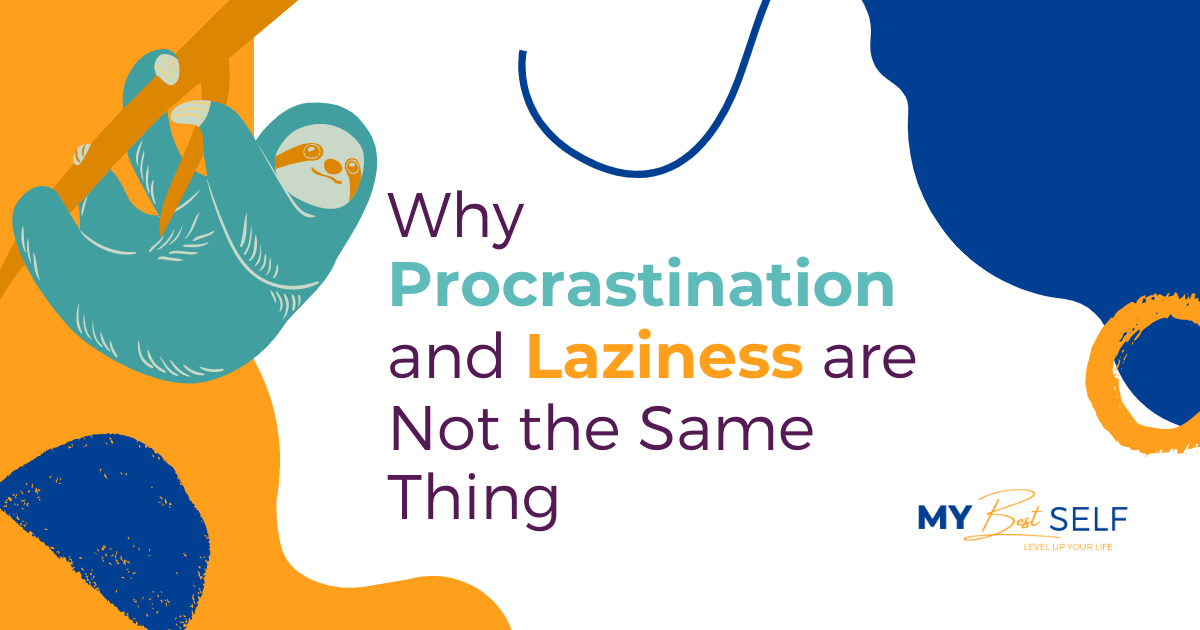Why Procrastination and Laziness are Not the Same Thing
Procrastination and laziness are two terms that are often used interchangeably, but they have different meanings. In this article, we will explore the differences between procrastination and laziness and why it is important to understand these differences.
What is Procrastination?
Procrastination is the act of delaying or postponing a task or decision that needs to be done. It is a voluntary delay, where a person puts off a task even though they know it needs to be done. Procrastination is often caused by a fear of failure, a lack of motivation, or a feeling of overwhelm.
What is Laziness?
Laziness is a lack of motivation or effort to do a task. It is a passive state where a person does not feel like doing anything. Laziness is often caused by a lack of interest, a lack of energy, or a feeling of apathy.
Examples of Procrastination Behaviors
Some common examples of procrastination include:
Spending too much time planning how to complete a task
Not completing something until it is ‘perfect’
Waiting until the last minute to start a task
Spending longer than needed to complete a task or project
Working on non-important or non-urgent tasks
The Story of Two People
Let's take a look at the story of two people, Pat and Sam.
Pat has a project due in two weeks, but they have not started working on it yet. They keep putting it off, even though they know they must work on it. They spend their time doing other things like watching TV, checking social media, and working on other projects. Pat is demonstrating procrastination behavior. Why is Pat procrastinating?
On the other hand, Sam also has a project due, but they do not feel like doing anything. They spend their time lying in bed, watching TV, and scrolling through social media. Sam is demonstrating lazy behavior. Why is Sam being lazy?
To better understand these cases, let’s look at the WHY behind procrastinating and lazy behavior.
Why Do People Procrastinate?
People procrastinate for a variety of reasons, including:
Fear of failure
Feeling overwhelmed
Perfectionism
Lack of time management skills
Fear of the unknown
Difficulty tolerating boredom
A need for control
Lack of self-confidence
Why Do People Feel Lazy?
People can feel lazy for different reasons, including:
Lack of interest
Lack of energy
Feeling burned out
Feeling depressed or anxious
Back to Pat and Sam
Now that we know some of the reasons why people procrastinate or feel lazy let’s take another look at our two stories.
In Pat’s case, there could be several reasons why they haven’t started the project yet; fear of failure or the unknown could be a reason if this is the first time Pat has been assigned this type of project. It could also be because of a lack of self-confidence. We don’t know until we talk to Pat, and Pat may not even fully understand why they don’t get started.
On the surface, we only see Sam watching TV. Therefore, Sam could also be procrastinating, but in this case, Sam could be feeling burned out and severely lacking energy. The reason for delaying the start of the project is coming from a different source than Pat’s procrastination.
Feeling lazy can often be a symptom of a lack of interest or mild depression.
What does it mean?
Procrastination and laziness often get used interchangeably because each result is inaction to the observer. It can be frustrating for those witnessing the inaction, but it can be equally frustrating for the people procrastinating or being lazy.
Procrastination and laziness are not the same thing. You can procrastinate without being lazy, and you can be lazy without procrastinating. It is important to understand the differences between these two concepts so that you can address them appropriately. If you find yourself procrastinating or feeling lazy, take a moment to reflect on why you might be feeling that way, and try to take steps to address the underlying cause.
In the Breaking the Procrastination Habit Workshop, we go step by step to uncover why you procrastinate and then create a plan to help you reshape your behavior and habits to overcome procrastination. Register here for the waitlist to be informed of the next workshop, or check our Events page to see all upcoming workshops.


